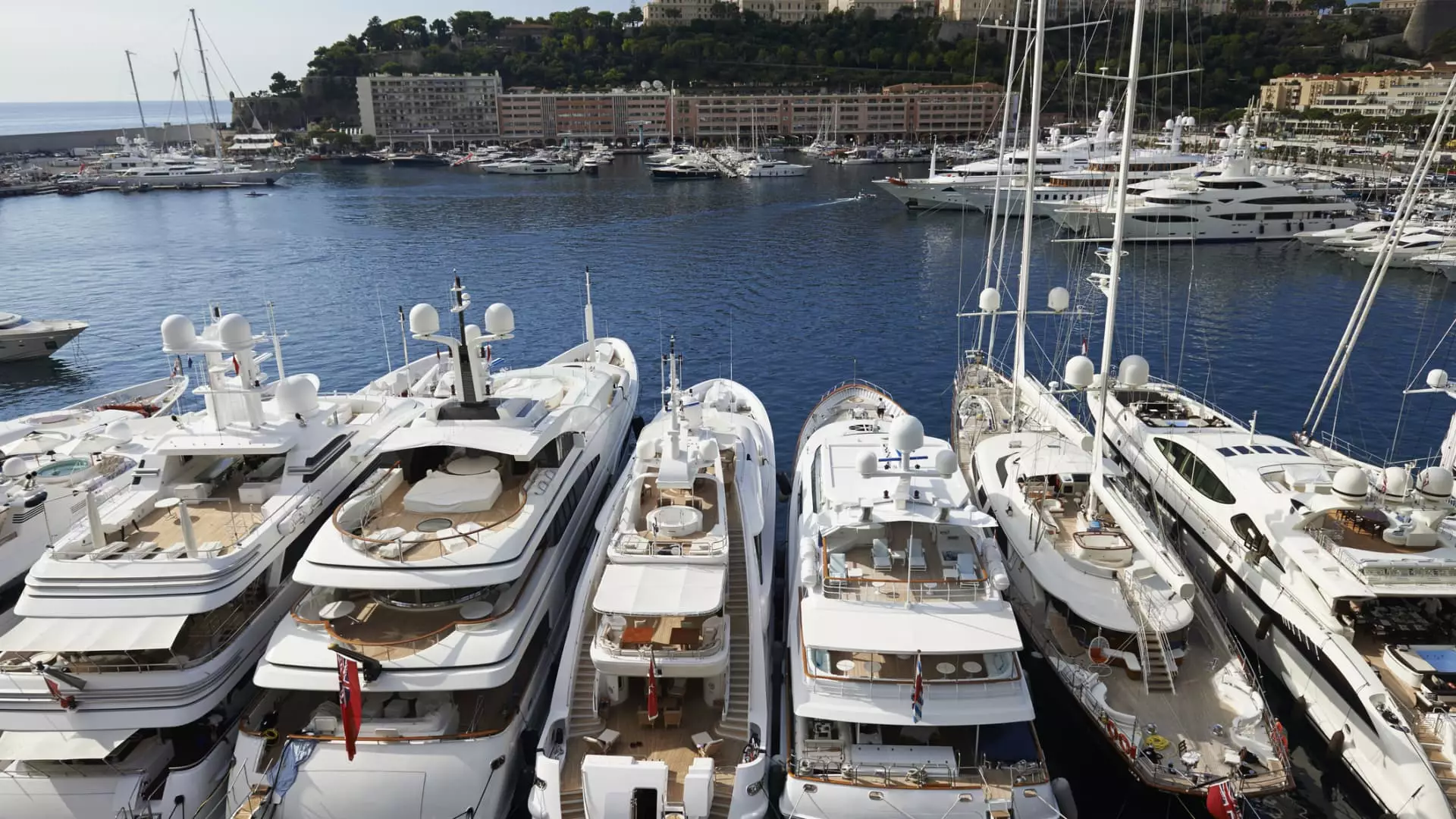The recent announcement of a 15% tariff on European-made recreational vessels exposes an unsettling truth about economic inequality and the skewed priorities of global commerce. While on paper, such tariffs aim to protect domestic industries, their real-world consequences disproportionately affect the wealthy elite—those who can afford multi-million-dollar yachts—yet benefit few beyond a small circle of affluent buyers and their shadowy strategies. This policy risks deepening the inequality gap, creating a two-tiered market where the wealthy can employ sophisticated tactics like foreign flagging to circumvent taxes, leaving the average American buyer at a disadvantage. Such measures not only undermine the principle of fair taxation but also threaten to stifle fair competition, potentially empowering a privileged class with means to dodge regulations designed for the many.
The broader economic message here is troubling. By making luxury goods more expensive under the guise of protecting domestic jobs, policies like these risk fostering a perception that wealth is insuperable and untouchable. It’s an optics nightmare for a government that, in pursuing protectionism, might inadvertently reinforce existing hierarchies and inequality instead of bridging them. For the average taxpayer, the message is clear: policies favor the rich, enabling them to manipulate the system for personal gain while the rest of us shoulder the burden or watch as innovation stagnates under protectionist pressures.
Strategic Evasion and the Erosion of Regulatory Fairness
The yacht industry’s typical response to such tariffs reveals a troubling cynicism that hampers genuine market fairness. Wealthy American buyers, faced with rising costs, are increasingly turning to loopholes—registering their vessels in foreign jurisdictions like the Cayman Islands or Malta—to dodge the tax altogether. This practice, known as “foreign flagging,” exemplifies how the wealthy can leverage international agreements and legal technicalities to preserve their assets’ value and enjoy tax advantages unavailable to ordinary consumers.
This strategic evasion signifies a broader failure of our regulatory landscape—one that favors those with resources to exploit loopholes rather than ensuring equal adherence to the tax code. When the system incentivizes such behavior, it degrades the integrity of trade policies and hampers efforts to create a level playing field. Instead of fostering fair competition among domestic and international shipbuilders, these tariffs and their evasive workarounds highlight a shift towards a system where privilege trumps policy. The question remains: at what cost is this inequality justified? If the aim is to support national industry, then applying tariffs selectively and without robust enforcement merely entrenches the power of the already privileged.
Implications for Domestic Manufacturing and Innovation
Interestingly, the imposition of tariffs may inadvertently spark a boost in U.S. yacht manufacturing, as wealthy buyers look closer to home to avoid the added costs of European vessels. While this could be viewed as a silver lining, it also raises questions about the sustainability of relying on protectionist tactics to revive domestic industry. Are we truly fostering innovation, or simply transferring demand to a political favorite—U.S. boat builders—who may not have the capacity or innovation to sustain a competitive edge on their own? Relying on tariffs as a crutch risks creating complacency within American yacht builders, who may be less motivated to innovate when shielded by a protected market.
Furthermore, these policies could distort the natural supply chain, encouraging a less competitive environment where quality and innovation take a backseat to compliance with regulatory maneuvers. Many of the largest U.S. builders could find themselves competing against a shadow market of foreign-flagged yachts, which may not adhere to the same regulatory standards. This mismatch fuels a paradox: the goal of protecting domestic jobs could lead to a decline in overall industry standards and innovation, fueling a cycle where the wealthy — again — become the gatekeepers of luxury and status, while policies aim to serve the broader public good.
This situation underscores a fundamental dilemma in contemporary economic policymaking: should tariffs serve as tools for national economic resilience or as mechanisms that deepen existing inequalities? The reality is that, in this case, the latter seems more appealing to the privileged, who can navigate the complex bureaucracy of vessel registration and international agreements with ease. Meanwhile, the broader public—those seeking access to accessible, affordable leisure pursuits—are pushed further away from their aspirations by policies that favor oligarchic privileges.
The challenge for policymakers is to recognize that protectionism disguised as economic patriotism often rewards the already privileged, at the expense of fairness, innovation, and economic diversity. As the wealthy maneuver around tariffs to safeguard their yachts, the democratic ideal of equal opportunity in wealth accumulation and consumption erodes. It’s time to question whether policies that overlook the ethical implications of tax evasion and market manipulation are serving the broader society or merely consolidating plutocratic advantages.

